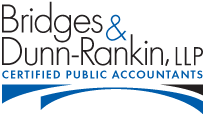Form 3115 May Not Be Necessary to Comply with Tangible Property Regulations
By Scott A. Fincher, CPA March 2015
In late 2013, the IRS issued final regulations (effective for 2014 and beyond, with elective retroactive application back to 2012) relating to the deduction or capitalization of amounts paid to acquire, produce or improve tangible property. Included in the regulations were safe harbors whereby businesses with audited financial statements can elect to expense as repairs items costing $5,000 or less, and businesses without audited financial statements ability to do so is conditioned on the company doing so for both book and tax purposes, making an election with its tax return, and having a written policy regarding such in place at the beginning of the tax year.
The de minimis election establishes a safe harbor amount, below which costs are deductible. Costs over the safe harbor amount may be deductible depending on the circumstances. All items under the safe harbor (if elected) must be expensed (i.e. must be applied consistently). The regulations also provide a safe harbor for small businesses (those with gross receipts of $10 million or less) to expense costs of repairs, improvements, maintenance or similar activity annually on buildings for the lesser of $10,000 or 2% of the unadjusted basis of a building (on buildings costing $1 million or less), and provide safe harbors for routine maintenance (generally costs that are not betterments that the taxpayer expects to perform more than once every ten years).
Many commentators have felt that it would be necessary for almost all businesses to file a Form 3115 (Application for Change in Accounting Method) in order to comply with and take advantage of these new rules. Given that the OMB estimates that the time required to learn about the law and form is 20 hours, the record keeping associated with the form is 40 hours, and the time to prepare the form 24 hours (i.e. in excess of 80 hours for a Form 3115), perhaps we should have been jumping for joy (full employment for tax accountants, right?). But we feel our time can probably be put to more productive uses, so we were delighted that the IRS just issued a revenue procedure indicating that companies with less than $10 million in total assets (at the beginning of the year) or less than $10 million in average annual revenue for the preceding 3 years do not have to file a Form 3115 to comply with these new regulations (prospectively beginning with 2014).
The IRS revenue procedure also says that it is considering and accepting comments with respect to whether to increase from $500 the expensing threshold for companies which do not have audited financial statements.
Scott A. Fincher, CPA is an accountant with Bridges & Dunn-Rankin, LLP an Atlanta-based CPA firm.
This article is presented for educational and informational purposes only, and is not intended to constitute legal, tax or accounting advice. The article provides only a very general summary of complex rules. For advice on how these rules may apply to your specific situation, contact a professional tax advisor.
